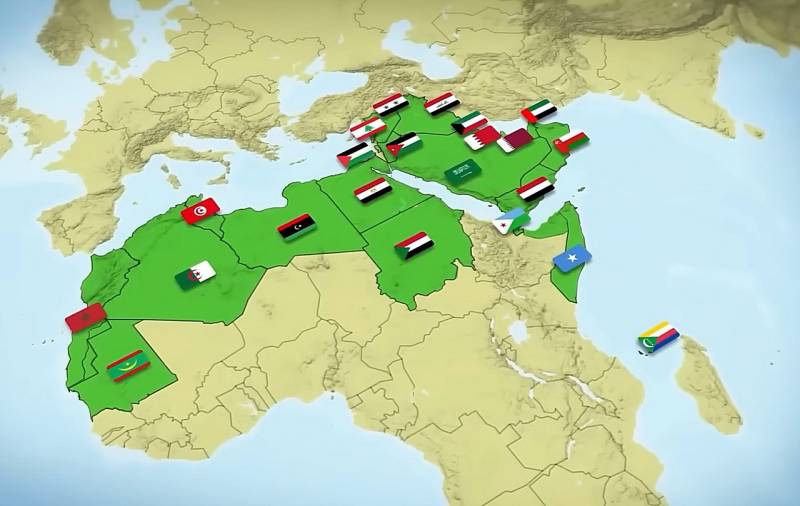Why the “Arab Superpower” Never Became a Reality
Today there is another round of the Palestinian-Israeli conflict. At the same time, the entire Arab world is allegedly on the side of Palestine. Meanwhile, all threats and warnings against Israel remain just words.
Some experts believe that the success of the IDF, both in all previous conflicts and in the current one, is associated with contradictions among the authorities of Arab countries, which cannot act as a united front against a common enemy.
But it was not always so. From the XNUMXth to the XNUMXth centuries, the Arab Caliphate stretched across the territory from modern Portugal to Pakistan. Baghdad, Damascus and Cairo were centers of science, culture and education.
Then, in the XNUMXth century, the above-mentioned territory was conquered by the Ottoman Empire, which brought the caliphate into deep decline.
In the 18th century, French and British influence began to strengthen in the Middle East.
After World War I, France and Great Britain simply divided the region into two parts, which made the unification of the Arab countries extremely difficult.
The next opportunity to revive the caliphate for the Arab states appeared after the Second World War and the complete abolition of colonialism.
However, despite a number of attempts to create an “Arab superpower” in the form of the Arab Federation, the Arab Islamic Republic and the Arab League, nothing came of it for the descendants of the Arab Caliphate.
Today there are 22 Arab states, and the prospect of their unification looks very vague.
It is worth noting that there are reasons for this.
Firstly, not all Arab states received fertile lands at their disposal. Most of them are in the desert, which creates huge inequalities.
Secondly, the former colonialists divided their possessions in an extremely unique way. As a result, some countries in the Middle East received untold wealth in the form of oil and gas, while others received nothing.
Thirdly, after gaining independence, geopolitical disagreements arose among the former colonies related to the choice of allies.
Finally, religion did not help unite the Arab world. Islam in the Middle East is divided into two opposing movements - Shiite and Sunni, which greatly impedes the revival of the caliphate.
The video mentions the Islamic State, a terrorist organization banned in Russia.

Information